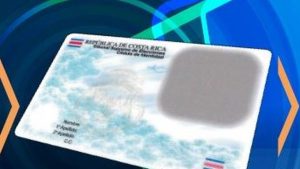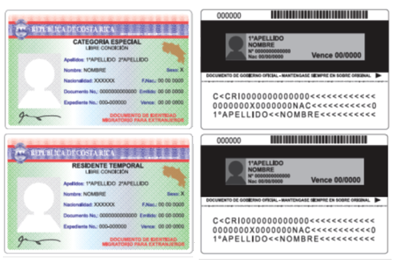Benefits of Residency in Costa Rica
Costa Rica Residency Benefits
Costa Rica is a popular destination for those looking to relocate, and for a good reason. With its tropical climate, stunning natural beauty, and high standard of living, it’s no surprise that many people are considering making it their permanent home. This article will explore the benefits of residency in Costa Rica and why it might be the right choice for you.
Tax Benefits
One of the most significant advantages of Costa Rica residency is the country’s favorable tax laws. As a resident of Costa Rica, you will be eligible for several tax exemptions and deductions that can significantly reduce your overall tax burden. For example, residents are exempt from paying taxes on foreign-earned income, and deductions become available for home ownership and charitable donations.

High Standard of Living
Costa Rica is known for its high living standard, another significant benefit of residency. The country has a robust healthcare system, excellent infrastructure, and a well-educated population. Additionally, the cost of living in Costa Rica is generally lower than in many other developed countries, so you can enjoy a comfortable lifestyle without breaking the bank.

Stunning Natural Beauty
Costa Rica is a nature lover’s paradise, and as a resident, you’ll have the opportunity to explore all the country has to offer. From the lush rainforests to the beautiful beaches, there is something for everyone to enjoy. Additionally, Costa Rica is home to a wide variety of wildlife, including monkeys, sloths, and hundreds of bird species.

You can get a Costa Rica driver’s license
With the new traffic law (Ley de Tránsito), you need to show proof of legal residence to get a Costa Rica driver’s license based on your existing one from your home country. Your foreign license is only valid in Costa Rica when you show your passport with a valid entry stamp.

You will get your Social Security
Once your residency is approved, you will be registered with the Social Security and Public Health Care System (CCSS or Caja), which covers pre-existing conditions.

Less hassle opening a local bank account
Banks in Costa Rica discourage or phasing out personal bank accounts for those who do not have legal residence. While having a Costa Rican bank account is still possible, it will be flagged as high risk. You will have to deal with different requirements, such as updating your information often or facing account closure. In addition, you will not be able to send or receive interbank (SINPE) transfers without a legal residence.

No more need to carry your passport
Carrying your passport everywhere is a hassle, as you risk losing it or stealing it. It’s challenging to carry out any banking transactions without a passport (even changing US dollars to colones), and often a notarized copy will not help. Residency means you get a resident ID card (called a DIMEX) you can carry in your wallet. You can then store your passport in a safe place.

No worries about boarding a plane headed to Costa Rica
Many airlines require proof of onward travel to board a plane to Costa Rica. It is also valid with Immigration once you enter the country. Having your residency card on hand eliminates all of these hassles.

Resident discounts
As a Costa Rican resident, you will receive discounts from tourism enterprises (for example, local flights), tourist sites and national parks, and local attractions.

Stop leaving Costa Rica every 90 days!
As a perpetual tourist, you are at the mercy of the person behind the desk with your passport in their hand every time you enter Costa Rica. They can stamp you from 0 to 90 days—nothing you can do about it if they refuse to allow you back in. If you’re given 10 days instead of 90, you’ll have to repeat the visa run in 10 days. It’s a complete lottery. Some people have been making visa runs for decades and have never had a problem acquiring 90 days at a time. Others are rejected or are only permitted 90 days from the first time they apply. It’s impossible to predict how things will turn out.
Click here to see what residency category is best for you.
Benefits of Citizenship
Many expats and immigrants take the final step of their Immigration to Costa Rican and become naturalized citizens. We get many questions about citizenship, mainly what are the benefits of citizenship? Is the process complicated? Will I lose my citizenship? Let’s review these questions and see if naturalization is right for you.
Being a Costa Rican citizen grants you the Right of Abode, which means you can live and work in the country without limits. You would believe that having permanent residency grants you this privilege. Still, it can be withdrawn for various reasons, including being convicted of a crime or failing to renew your resident status. Costa Rican citizenship cannot be revoked (obtained under pretenses).
Remember, “permanent residence” is not permanent. You still need to renew your residence status every few years. Moreover, you must pay a renewal fee and show your continued enrollment in CCSS (Caja – social security). It only means you have the permanent right to renew your residence status as long as you follow the rules.
-
Citizens have the right to vote.
-
Citizens can not be quickly deported.
-
Citizens are eligible to apply for government jobs.
Other benefits of citizenship include:
Voting rights
As a citizen, you have the right to vote in presidential elections (whether you live in Costa Rica or not), legislative elections, and municipal elections.

National ID card
The Supreme Elections Tribunal (TSE) provides Costa Rican citizens with a free ID card (Cédula de Identidad) valid for ten years. Replacing it if lost or stolen is considerably more straightforward and effortless than changing a foreign resident card (DIMEX).

Costa Rican passport
As a citizen, you may apply for a Costa Rican passport, rated 30th in the Henley Passport Index, and provides visa-free or visa-on-arrival entry to 149 countries and territories, including those needing a US visa. Costa Ricans can also travel to additional South American countries without paying the high reciprocal visa-on-arrival costs that Americans and Canadians must pay. In addition, a Costa Rican passport may allow you to travel to places that your own country’s passport does not. For example, you may go to Cuba without limitations using your Costa Rican passport).

CCSS (Caja) enrollment
While all inhabitants (citizens and non-citizens) must enroll in CCSS, not doing so does not risk your citizenship. In contrast, international residents must demonstrate ongoing enrollment in CCSS to renew their status.

You can leave and return without restrictions
As a foreign resident, if you plan to leave Costa Rica for an extended time, you need to apply for suspension of your resident status with Immigration and resume your resident status when you return. Citizens can leave for many years and return.

Get your deposit back from Immigration
Once you become a citizen, you can cancel your residency with Immigration and thus be eligible for a return of the Guarantee Deposit you made. While technically, according to law, all residents (citizens or non-citizens) have the same rights, you’ll find that services and platforms are much more geared towards citizens than non-citizens.

Citizenship Process:
Citizenship by Residence
• 7 years living in Costa Rica as a resident with a cédula (5 years if you are a citizen of a Central American country, a citizen of certain Latin American countries, or a citizen of Spain by birth);
• 2 character witness declarations;
• Proof of financial means of living, such as an income certification from a CPA;
• Completion of citizenship tests – Spanish and social studies (applicants aged 65 and over are exempt from this requirement).
Citizenship by Marriage to Costa Rican citizen
• 2 years living in Costa Rica, married to a Costa Rican citizen;
• Exempts you from the proof of financial means and completion of citizenship tests.
Citizenship Requirements
- You must prove you have lived in Costa Rica for the accumulated time through the record of immigration entries and exits (TSE will do this as part of the process);
- Birth certificate from home country, Apostilled or Legalized ( in most cases, you can omit this requirement if it is in your immigration file);
- A Criminal Record Check from the home country, Apostilled or Legalized, issued within the last 3 months.
Important: All naturalization applications are processed by the Options and Naturalizations Department at the TSE, not by Immigration.
Will I Lose My Citizenship from my Home Country?
This question we get a lot, mainly from US and Canadian citizens who are not accustomed to the modern immigration world. We have answered this question in detail in the article Dual Citizenship in Costa Rica.
The short answer for US, Canadian, and many other citizens is no; you do not lose your citizenship simply by naturalizing as a citizen of Costa Rica. However, one thing to realize is that as a Costa Rican citizen, you will be treated as solely Costa Rican in the eyes of the Costa Rican authorities.
Conclusion
In conclusion, Costa Rica offers many benefits for those looking to relocate. From its favorable tax laws and high standard of living to its stunning natural beauty and a strong sense of community, there are many reasons why residency in Costa Rica might be the right choice for you. If you’re considering a move, be sure to research and explore all the country has to offer.
-Written by Glenn Tellier (Founder of Grupo Gap)
+506 8500-2085
[email protected]
To see if you qualify for a residency category, click HERE!
Contact us at Gap Real Estate today HERE!
Need Residency in Costa Rica? – Click HERE.
Want to invest money? – Click HERE.
Need to borrow money? – Click HERE.
Ready for a Relocation tour? – Click HERE.




